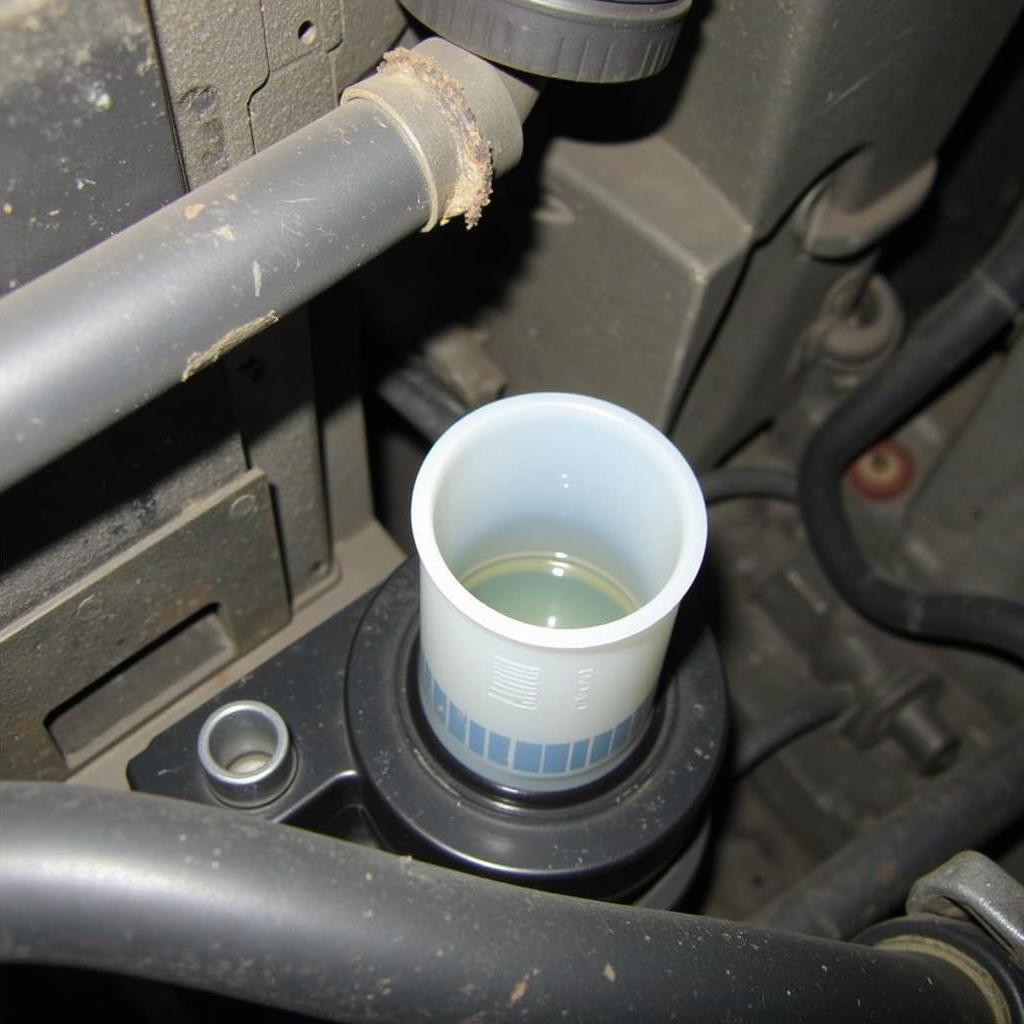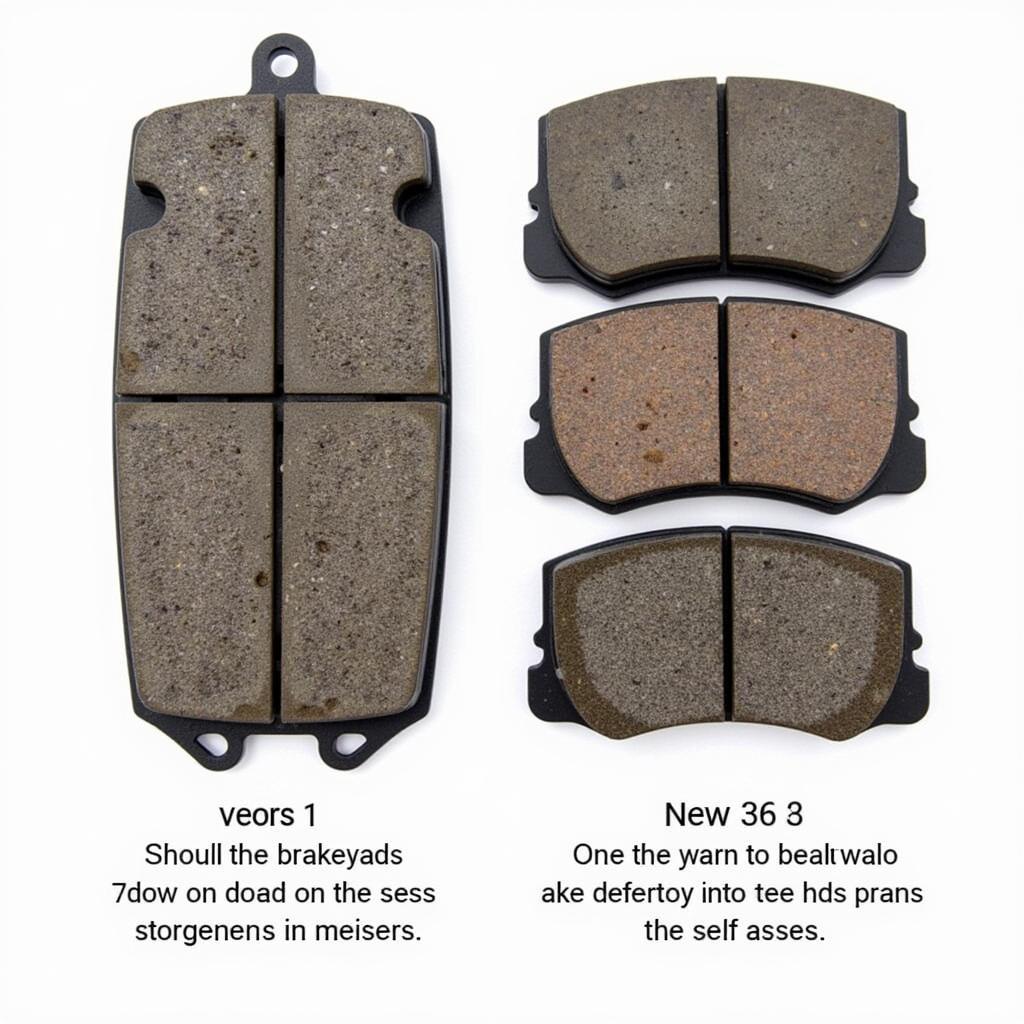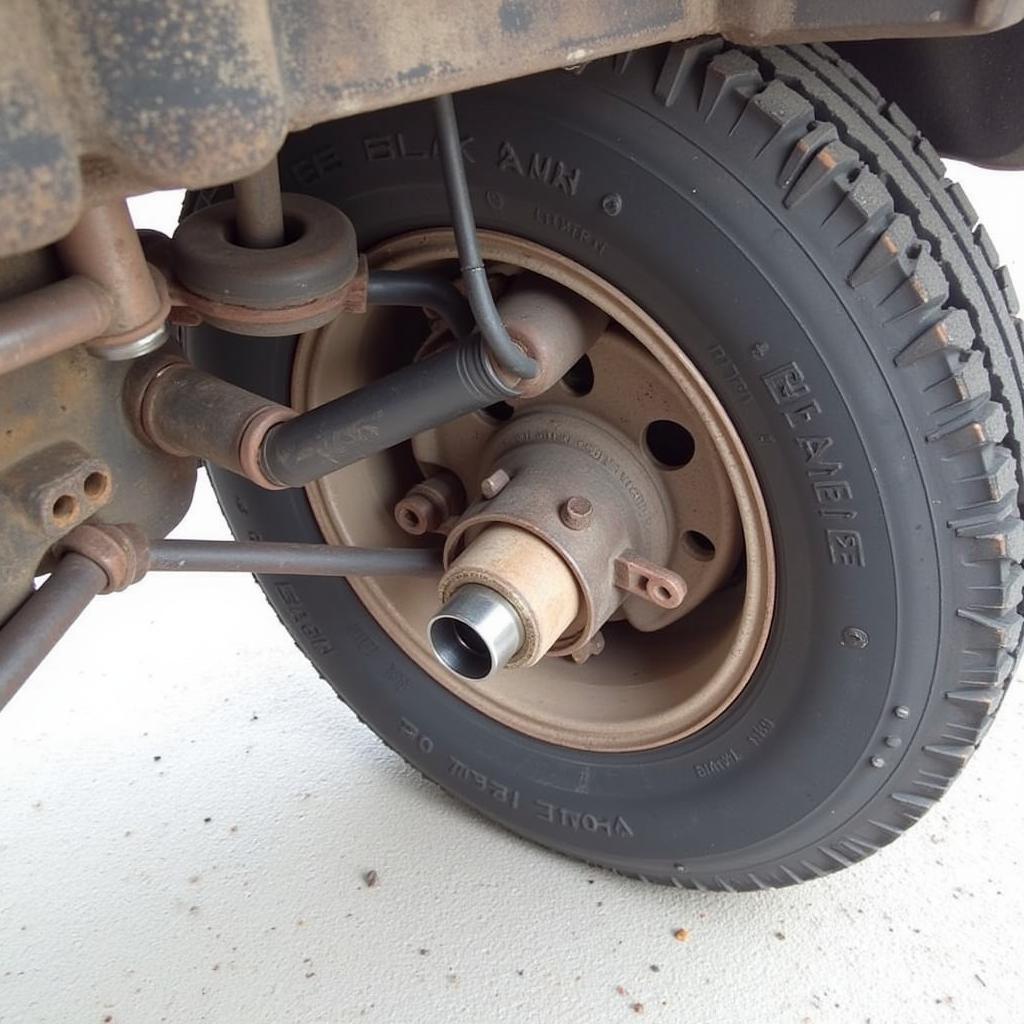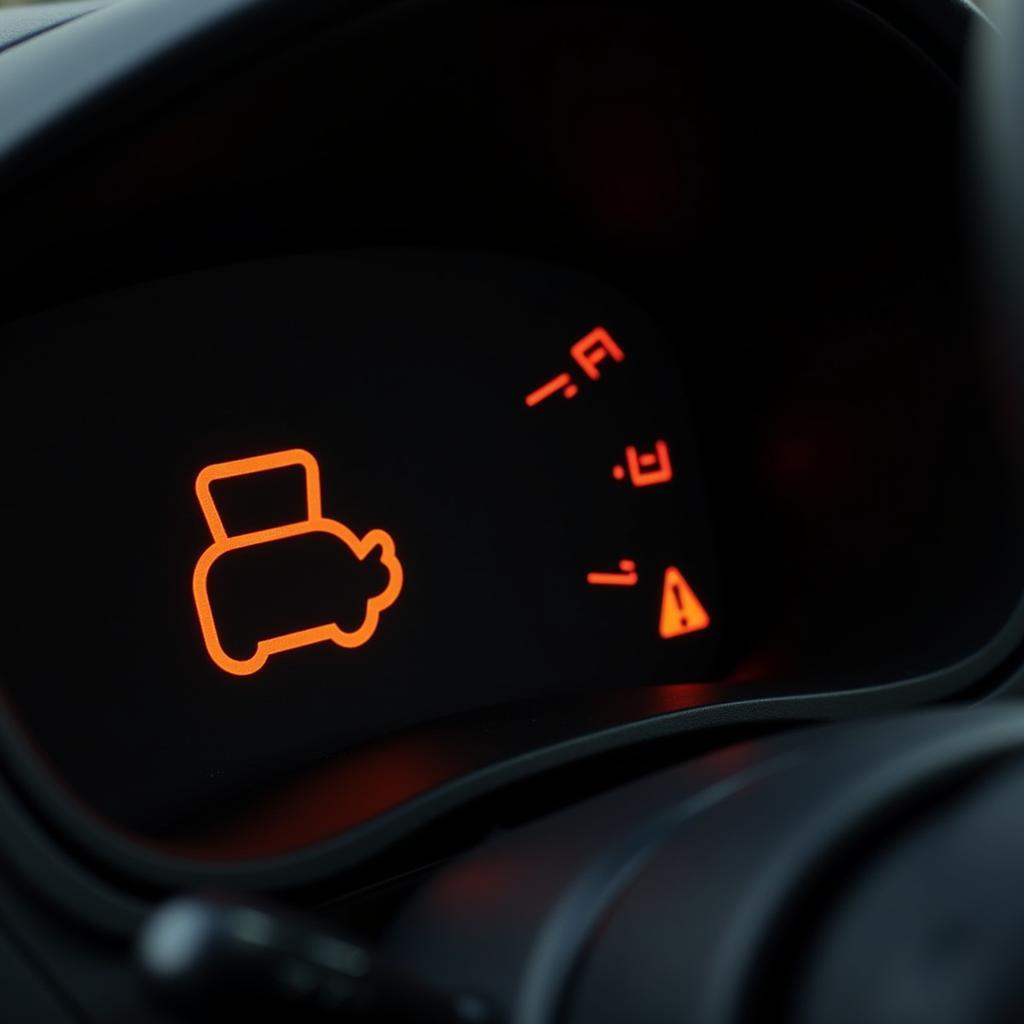The brake warning light on your dashboard is a crucial safety feature. When illuminated on your 1995 Chevy Silverado, it signals a potential problem within your braking system that requires immediate attention. Ignoring this warning light could lead to brake failure, putting you and others at risk. This article will guide you through the common causes of a lit brake warning light in a 1995 Chevy Silverado and provide potential solutions to help you get back on the road safely.
Common Causes of a Brake Warning Light
Several issues can trigger the brake warning light on your 1995 Chevy Silverado. Here are some of the most common culprits:
1. Low Brake Fluid Level
One of the most frequent causes is a low brake fluid level. Your Silverado, like all vehicles with hydraulic brakes, uses brake fluid to transmit force from the brake pedal to the wheels. If there’s a leak in the system or your brake pads are excessively worn, the fluid level can drop, triggering the warning light.
Solution: Check the brake fluid level in the reservoir under the hood. If it’s low, carefully add the correct type of brake fluid specified in your owner’s manual. However, simply topping off the fluid won’t fix a leak. It’s crucial to inspect the entire brake system for leaks and address them immediately.
 1995 Chevy Silverado Brake Fluid Reservoir
1995 Chevy Silverado Brake Fluid Reservoir
2. Worn Brake Pads
Brake pads are designed to wear down over time. When they become too thin, a sensor within the brake pad will contact the rotor, completing a circuit and illuminating the brake warning light. This serves as a clear indication that your brake pads need replacement.
Solution: If you suspect your brake pads are worn, it’s crucial to have them inspected by a qualified mechanic. Worn brake pads not only diminish braking performance but can also damage the rotors, leading to more costly repairs.
 Worn Brake Pads on a 1995 Chevy Silverado
Worn Brake Pads on a 1995 Chevy Silverado
3. Faulty Brake Caliper
The brake caliper houses the piston that pushes the brake pads against the rotor, creating the friction needed to stop your Silverado. A sticking or seized caliper can cause uneven brake pad wear, dragging brakes, and eventually trigger the warning light.
Solution: A faulty brake caliper often requires professional attention. A mechanic can diagnose the issue and determine if the caliper can be repaired by cleaning and lubricating its components or if a replacement is necessary.
4. ABS System Malfunction
Your 1995 Chevy Silverado likely has an Anti-lock Braking System (ABS). This system prevents wheel lockup during hard braking, enhancing control. However, a malfunctioning ABS system, often indicated by a separate ABS warning light, can also trigger the brake warning light.
Solution: Diagnosing an ABS problem typically requires specialized diagnostic equipment. If you suspect an ABS issue, it’s best to consult with a qualified mechanic or an automotive electrician who can accurately identify and address the problem.
 ABS Sensor on a 1995 Chevy Silverado
ABS Sensor on a 1995 Chevy Silverado
5. Electrical Issues
While less common, electrical issues within the brake light circuit, such as a blown fuse, faulty brake light switch, or wiring problems, can also illuminate the brake warning light.
Solution: Troubleshooting electrical problems requires a basic understanding of automotive electrical systems. If you’re comfortable with it, you can check the fuses and visually inspect the wiring for any damage. However, for a thorough diagnosis and repair, consulting an automotive electrician is recommended.
Conclusion
The brake warning light on your 1995 Chevy Silverado is a critical safety indicator that should never be ignored. Addressing the underlying cause promptly can prevent further damage to your braking system and ensure your safety on the road. While some issues, like low brake fluid, might seem straightforward to fix, it’s always best to consult a qualified mechanic if you’re unsure about any aspect of your vehicle’s braking system. Remember, regular brake inspections and maintenance are crucial for optimal braking performance and overall vehicle safety.

